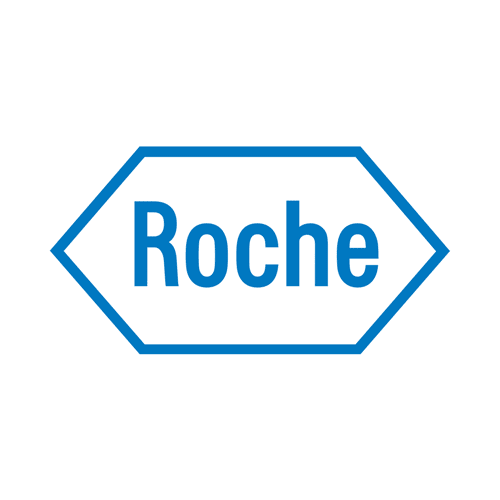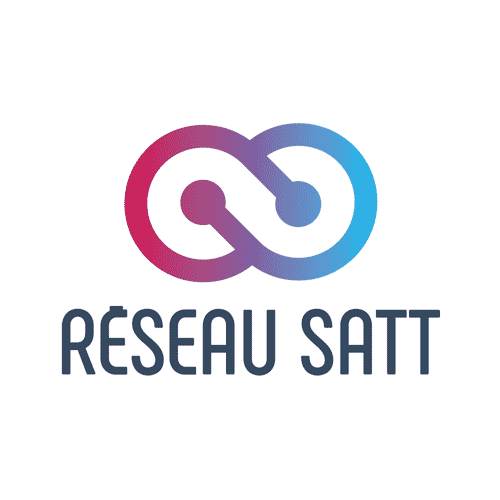
Sector analysis

Identify growth-generating areas in your sectors of interest
For more than 30 years, our specialized team has been supporting companies and institutions in carrying out sector analysis to develop and structure local ecosystems of excellence.
They trust us


















The key success factors of a sector analysis
In the interests of competitiveness and in response to the current challenges of sovereignty, sector analyses are a highly relevant tool. They help to position a manufacturer, a public player or a region in terms of the development of key activities or skills, with the aim of creating value.
Here are the key success factors for a successful sector analysis:
Before starting a sector analysis, it is crucial to define the objectives you wish to achieve. Depending on the level of maturity and the local context, the expected result will not be the same. The analysis can be used to consolidate an emerging sector by defining its structure across the entire value chain, to revive a dormant sector by studying the obstacles and levers, or to refocus the scope of a sector around key issues for the future.
How mature is the industry? Has the industry landscape changed recently? What are the expected results?
The industry’s stakeholders, both private and public, must be involved at every stage of the analysis, starting with the inventory. It is important to have all points of view when defining the roadmap, which also helps to maximize stakeholder support for the chosen orientations. Taking into account the specific characteristic of the ecosystem also helps to formulate a plan that is in line with market needs and local resources.
Have all the stakeholders been consulted? How can all stakeholders be involved in such a project?
Current and emerging trends in the sector must be studied and incorporated into the analysis. Industries need to anticipate future changes and prepare to adapt. To do this, an analysis of the risks and opportunities associated with changes in the sector must be carried out.
Are there other competing sectors? Will new trends impact on the sector?
How we support you in your sector analysis
We accompany our clients in this economic analysis by sector by characterizing the stakeholders and their needs, the environment, the actions carried out and the mechanisms generating these actions within the sector. Based on this sector analysis, we evaluate the strengths and weaknesses of the system and identify economic development opportunities and competitive synergies between possible actors for our clients.
Examples of recent sector analyses carried out for our clients
Strategic analysis on the subcontracting of drugs and active ingredients
We conducted a strategic sector analysis on the subcontracting of drugs and active ingredients for an interministerial grouping in several regions in France.
Our client wanted to define a roadmap for the development of the sector and to identify optimization levers with the players involved in the field.
Through an economic inventory and the challenges faced by French companies in the region as well as their ideas for development, our team made 10 major recommendations in order to support the competitiveness of the sector, strengthen its structure and unleash innovation.
Sector analysis of the French wood industry
We have carried out a sector analysis with representative organizations and wood industry players in France, focusing on several strategic issues: consolidating economic data (business fabric, added value, indirect employment, etc.) to support the strategic orientations of companies and public authorities, helping to create links and cooperation within the sector, and more generally preparing it to better respond to the challenges of tomorrow, particularly in terms of increasing skills or mobilizing forest resources.
Our investigation and sector analysis enabled our clients to obtain an overview of the current industry cluster and to prepare the future with a co-defined and shared evolution plan.
Creating a cluster for the recycling of composite materials
Alcimed supported an economic development and innovation agency in its reflection for the construction of composite materials recycling cluster in a French region, with the aim of federating the players of the local ecosystem, across the whole value chain, from the production of the materials, to their recycling and their second life.
The objective of our sector analysis project was to define the roadmap for the structuring and development of the cluster, by identifying the composite materials of interest for the region, the initiatives already carried out on a local and national scale, as well as existing technologies and skills on an international level.
In addition to an in-depth bibliographical work, we compared the points of view of various local players and experts to develop a complete vision of the ecosystem in the region.
In fine, our sector analysis brought us to define with our client guidelines on the classes of composite materials presenting a market development opportunity for the region and to co-construct a roadmap for the creation of the cluster.
Sector analysis of the analytical laboratory sector for an inter-professional committee
We carried out a sector analysis for an inter-professional committee with two objectives: 1) to finely characterize the analytical laboratory market (value chain, market size, typology of players, needs of players, etc.) to guide commercial decisions, and 2) to decipher the major trends at work on the market (digitalization, emergence of new services and business models, regulatory requirements, evolution of care pathways and related sectors, etc.).
Our sector analysis enabled our clients to prepare the future of the sector in an increasingly uncertain context by establishing, following our analysis and with our team, a strategic roadmap for the evolution of the cluster.
Strategic sector analysis and definition of a roadmap for the photovoltaic sector in a French region
We assisted the economic development agency of a French region with a strategic study of the development of its photovoltaic industry, with a view to helping it achieve energy neutrality by 2050.
We began by carrying out a diagnosis of the photovoltaic industry in the national and international context, including all the blocks in the value chain, the number of players, employees and sales figures. We then carried out a strategic sector analysis of the value chain and the photovoltaic sector to identify the region’s strengths and weaknesses (SWOT).
Our support ended with the definition, in conjunction with the local players, of a roadmap comprising 3 strategic orientations and 8 projects to be pursued with the players, in order to make the sector more competitive and innovative.
Consolidation of the hydrogen sector for a French local authority
Our team was commissioned by a local authority to help it define a strategy for its hydrogen industry. This French local authority is working to create an ecosystem that fosters synergies between industry, training and innovation players in its area, and wanted to position itself as a regional leader in hydrogen.
With this in mind, we drew up a detailed overview of the various technological building blocks and support functions involved in the hydrogen economy. In addition, we defined the local authority’s strategic positioning on hydrogen in a regional context, based on a benchmark of projects in neighbouring regions.
Our support has enabled us to define an initial strategic roadmap for the development of the sector, including realistic and achievable operational avenues on several timescales, in conjunction with potential partners.
You have a project?
To go further
Founded in 1993, Alcimed is an innovation and new business consulting firm, specializing in innovation driven sectors: life sciences (healthcare, biotech, agrifood), energy, environment, mobility, chemicals, materials, cosmetics, aeronautics, space and defence.
Our purpose? Helping both private and public decision-makers explore and develop their uncharted territories: new technologies, new offers, new geographies, possible futures, and new ways to innovate.
Located across eight offices around the world (France, Europe, Singapore and the United States), our team is made up of 220 highly-qualified, multicultural and passionate explorers, with a blended science/technology and business culture.
Our dream? To build a team of 1,000 explorers, to design tomorrow’s world hand in hand with our clients.
Alcimed carries out consulting missions in a variety of fields and on topics as diverse as the uncharted territories of our clients! Our projects and the methodological approaches we develop are based on the specific needs and contexts of our clients. We for example support our clients in defining their R&D or innovation strategy, in studying their target markets, in identifying and exploring new opportunities, in investigating innovative technologies, in defining their sales and marketing strategies, in integrating CSR or data science into their practices, or in imagining the future of their activities.
We’re not consultants, we’re explorers! Working with a consulting firm like Alcimed means living a different experience, with a team that always favors face-to-face meetings, goes beyond classic deliverables in favor of innovative ones (videos, data visualization tools, websites, collaborative platforms, …), that favors interactive animations in projects (escape games, quizzes, board games, role-playing games, video games, …), and that loves to make clients discover unusual places!
Beyond analyzing the web and literature, and large internal or external data lakes using data science, our consultants target and interact with key stakeholders: these can be clients, suppliers, partners, experts, opinion leaders, end-customers or patients, … and we challenge their viewpoints. This investigative work enables us to build our clear opinion at the crossroads between the viewpoints of the different stakeholders, and leads us to build recommendations to allow our clients to make decisions.
A sector analysis is a study designed to identify areas of economic development in a sector of interest, in order to position a region, a public body or a manufacturer in the development of key skills or activities. It consists of an analysis of the economic dynamics in the area concerned, by studying the players in the sector and mobilizing those in charge of economic development, with a view to creating value for all stakeholders.
Sector analyses serve several purposes:
- A detailed characterisation of the sector, based on a detailed inventory (business fabric, initiatives undertaken, existing skills, added value, indirect jobs, etc.) and identification of the associated challenges.
- Structuring and optimising the way the sector operates, in order to support local competitiveness and innovation, and to create links and cooperation within the sector.
- Defining the industry’s strategic roadmap, in line with the strategic orientations of companies and public authorities.